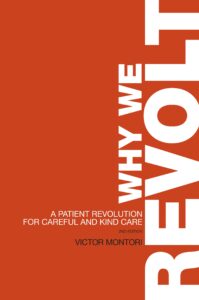William J. Peters: At Heaven’s Door-What Shared Journeys to the AfterLife Teach about Dying Well and Living Better
January 25, 2022 by David
Filed under Non-Fiction, WritersCast
 At Heaven’s Door – What Shared Journeys to the Afterlife Teach about Dying Well and Living Better – William J. Peters – with Michael Kinsella – Simon and Schuster – 978-1-9821-5042-6 – Hardcover – 248 pages – $26.00 – January 18, 2022 – ebook editions available at lower prices
At Heaven’s Door – What Shared Journeys to the Afterlife Teach about Dying Well and Living Better – William J. Peters – with Michael Kinsella – Simon and Schuster – 978-1-9821-5042-6 – Hardcover – 248 pages – $26.00 – January 18, 2022 – ebook editions available at lower prices
William Peters is a therapist who had worked for many years with people at the end of their lives. In 2000, when he was volunteering at the Zen Hospice Project in San Francisco , he experienced something very similar to what mystics describe and what some people who have been close to death have reported, the sense of floating in midair, completely out of the body. In this case, he was with his patient in this “other dimension” and the dying person looked at him and smiled. Peters himself returned to his body, but the patient remained unconscious and soon died.
This powerful experience set Peters off on what has become the journey of his life’s work. He began searching for other people who had had similar experiences. He spent more than twenty years finding people, talking to them, and meticulously categorizing their stories to identify the patterns and characteristics of what he calls the “shared crossing” experience. What is really interesting is how similar all these experiences are, regardless of age, gender, background, cultural origin, etc. Many of these stories are included in this book, as people have had visual and sensory effects that are to them evidence of another dimension, that brought with them powerful emotional after-effects that in most cases stayed with them and completely changed their understanding of reality.
Apparently this kind of experience is known to many in the hospice community and even some otherwise rationalist medical practitioners. The book is filled with stories of all kinds, some are spouses and parents of loved ones lost either suddenly or after long illnesses, and some stories are told by individuals who were simply present at someone’s final passage and were chosen to share the experience, or in some cases to help usher the dying person into the light of this “afterlife” dimension.
After years of research and documentation, Peters has a lot to say about what all of these experiences might mean for us – the living. Regardless of our outlooks and beliefs, we all want to know what will happen to us when we die, and those who have shared in the death experience as reported here might allay our all too reasonable fear and help explain what comes next. Our culture does not embrace the experience of death as many other cultures have done – our medicine tries desperately to stave off death, and we are all so attached to living, with no training or understanding of death, we push it away completely.
It does not matter whether you embrace or reject the stories told here, or the literal descriptions of the “afterlife” and the other dimensions the dying experience. Maybe what we experience at death is just a biological projection, after all. Whatever you may choose to believe, knowing more about death, understanding the end-of-life passage, and better integrating it into our lives is important for our psyches.
William Peters is the founder of the Shared Crossing Project and director of its Research Initiative. He has spent many years studying end-of-life experiences. Peters worked as a hospice volunteer with the Zen Hospice Project in San Francisco and as a teacher and social worker in Central and South America. A practicing grief and bereavement therapist, he holds degrees from Harvard’s Graduate School of Education and UC Berkeley.
I had a terrific conversation with William Peters. The book, and my conversation with the author have stayed with me and I continue to explore where it has taken me. It appears to be a simple book, but comes with many layers of understanding and thoughtfulness for the attentive reader.
Visit the Shared Crossing website here.
Podcast: Play in new window | Download
Why We Revolt: A Patient Revolution for Careful and Kind Care by Victor Montori MD
October 14, 2020 by David
Filed under Non-Fiction, WritersCast
 Why We Revolt: A Patient Revolution for Careful and Kind Care – Victor Montori, MD – 9781893005624 – Mayo Clinic Press – paperback – 192 pages – $14.99 – September 29, 2020 – ebook versions available at lower prices
Why We Revolt: A Patient Revolution for Careful and Kind Care – Victor Montori, MD – 9781893005624 – Mayo Clinic Press – paperback – 192 pages – $14.99 – September 29, 2020 – ebook versions available at lower prices
Victor Montori is an incredibly empathetic and kind clinician, whose commitment to creating a better form of health care than we have today in the United States shines through every page of this short, but extremely powerful book. Dr. Montori is an endocrinologist at the Mayo Clinic in Rochester, Minnesota. He is originally from Lima,Peru, where he went to medical school before coming to America for postgraduate study and staying here to practice medicine.
Why We Revolt was originally published as part of the work of his nonprofit organization, The Patient Revolution, and has now been published by the Mayo Clinic, where Dr. Montori is on staff. In the book, he gives us a practitioner’s view of how health care has become corrupted through corporatism and the industrialization of medical care. This conceptual framework resonates for me – modern medicine treats our bodies as products.
Dr. Montori points out that our medical/healthcare system makes doctors and patients accountable for “delivering care” instead of systematically supporting the work of caring. Our emphasis on efficiency requires the health care system to process instead of care for people. And that the emphasis on standardizing diagnosis and treatment alike disables the core caring relationship between doctors and other caregivers and the patient. As Montori puts it, the system “offers care for people like you instead of care for you.”
The book proposes that we build a health care system that is based not on greed but on solidarity – this is the revolutionary idea at the core of the book, one that is incredibly energizing and moving.
Dr. Montori proposes a transformational effort. Why We Revolt was written long before COVID19, of course, but the book clearly predicts how the response to COVID19 would favor the economic interests of medical industrial complex to profit from the pandemic. It also predicted policies that left ill patients away from loved ones, to suffer and die alone. It also predicted how clinicians, patients, and citizens would come together, going beyond personal self-interest and in support of our communities to help and to protect each other, resulting in the production of homemade masks and the nightly celebrations of healthcare professionals in major cities.
Why We Revolt very clearly documents how the American healthcare system has become both exploited and industrialized. The United States lags behind many other countries on patient outcomes, as the emphasis in our system is on profit rather than the core values of patient care. There is no question that change is needed and this book is a valuable stimulus and handbook for the change we can make together before the whole system collapses under the weight of capitalism.
This book should be an inspiration to physicians, policymakers, and of course to all of us who are patients. There is no question that we can find ways to transform our healthcare system to make it compassionate and humane and affordable for all.
Author proceeds from Why We Revolt go directly to Patient Revolution, a non-profit organization founded by Dr. Montori that empowers patients, caregivers, community advocates, and clinicians to rebuild our healthcare system one bit at a time.
Dr. Montori has received the Karis Award, a patient-nominated recognition for his compassionate care. A researcher in the science of patient-centered care, Victor and his colleagues have authored over 580 research articles. A full professor of medicine at only 39 years of age, Montori is one of the most cited clinical researcher in the world.
Victor is a passionate and powerful advocate for his work and for his ideas, and caregiving and kindness are central to him as a human being as well as a doctor. Speaking with him is inspiring, and I hope that through this podcast, you will enjoy this brief opportunity to hear him speak and yourself be inspired to help bring his ideas to fruition.
Buy the book from Bookshop.org to support independent booksellers.
Visit The Patient Revoution website for more information about Dr. Montori’s work.

Podcast: Play in new window | Download

